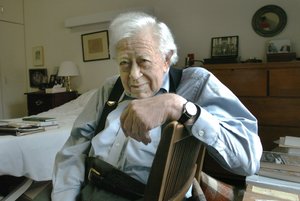A poet of Jonsonian inclinations—which is to say, classical (in form), sardonic, epigrammatic, and academic (in the best sense), George Garrett found an itinerant sophistication and wordliness sometimes inadequate for coming to terms with the world’s savvy indifference to the characteristics he valued most: sympathy, tenderness, wit, public responsibility, and the sanctity of private passion. But his best poems succeed and are most humanly appealing when, as was not infrequently the case, the most gracious moments were scaled back by modest and witty admissions of his own shortcomings. As a device, being in-the-know serves not only as check against the grandiosity that commonly shadows our ideals, it also configures the speaker in such a way that we stand to calibrate the truth of his expressions against a known measure.
Garrett created an ambient sympathy through the revelation of imperfection, and this creation in turn modeled a larger sympathy—one of his cornerstone themes. Moreover, because the speaker allowed the reader to have something on him, he relinquished the right to put on the kind of rhetorical moves that tempt lesser poets to dispense with the spade work of making meaning. For instance, in “Luck’s Shining Child,” the poet-teacher decompresses both himself and his pedagogy:
When I cross the gravel parking lot
one foot winces
and I have to hop along on the other.
My students believe I am trying
to prove something.
They think I’m being a symbol of
dichotomy, duality, double-dealing,
yin and yang.
I am hopping because it hurts.
Because there is a hole in my shoe.
Of couse the irony is that literature, including this poem, often is a kind of double-dealing, but the further point is that misuse of language, whether via rhetoric or any other linguistic means, was never a right in the first place, particularly for poets. It can never by conferred, accepted, or for that matter, usurped—as a result of which language acquires a sanctity like that of life itself.
There are poets of language and poets of disposition. Garrett’s strength lay in the fact that he often seemed one at the moment when he was most being the other. This trick made him the most Elizabethan of southern poets, and it should come as no surprise that he wrote three best-selling novels about the period, The Death of the Fox (1971), about poet and courtier Sir Walter Ralegh, The Succession, about Elizabeth I (1983), and Entered from the Sun (1990), about the death of poet and playwright Christopher Marlow. Elizabethan richness and the attraction of such a close involvement with prosodic variety—as symbolic of diminishing, but still recoverable (if only quotational or elegiac) harmonies, allowed Garrett to create expectations of fullness and presence that ran counter to postmodern discoveries of emptiness and absence in the same poetic culture.
Interestingly, while circling the English language’s high historical moment by means of its poets (one—Ralegh—a consummate man of letters and the world) and declaring by example his own affiliation with the sympathies and communitarianism created by such an intensity of shared language awareness, Garrett declined to incorporate Shakespeare within this pantheon. In fairness, it should be said that the missing center is less likely to be the postmodernist’s blind spot, aporia, or missing center, than the (always) final destination of a gradus ad parnassum.



